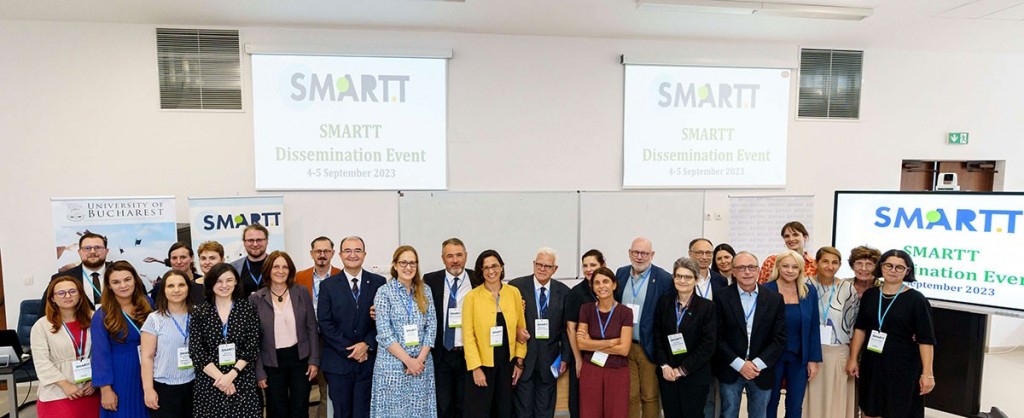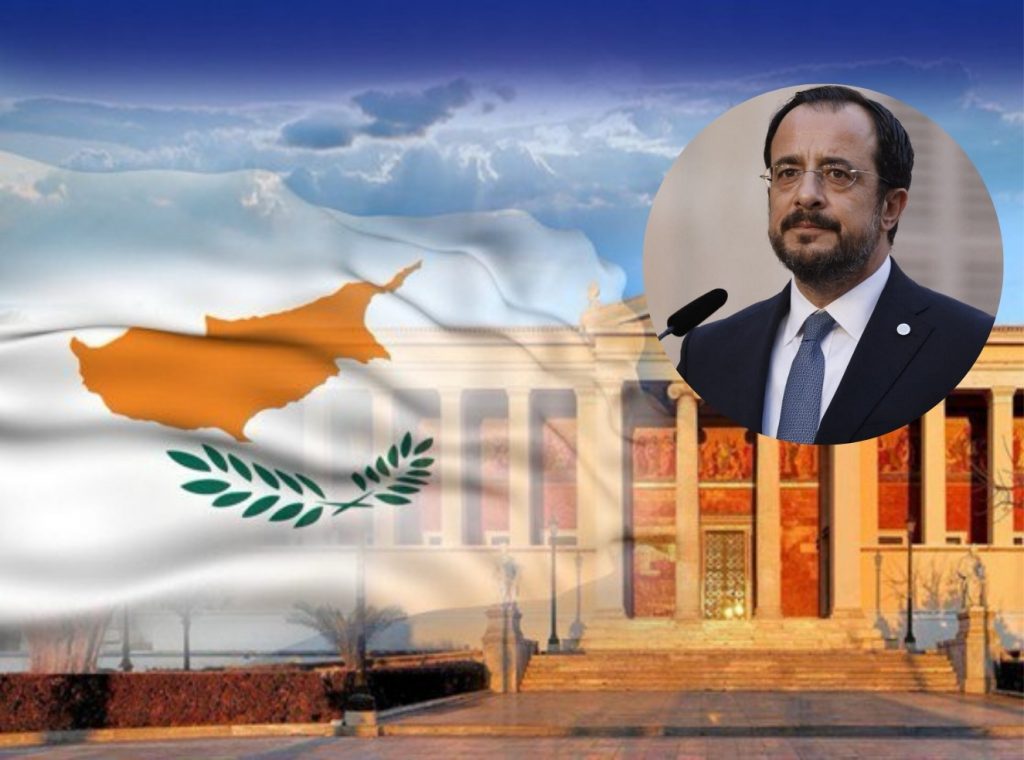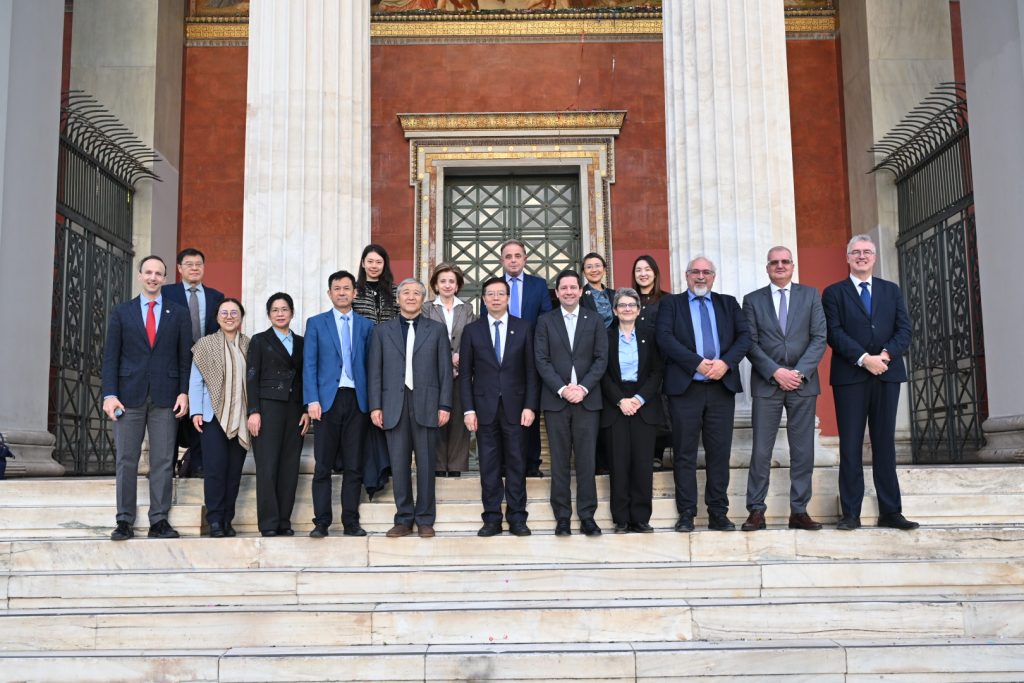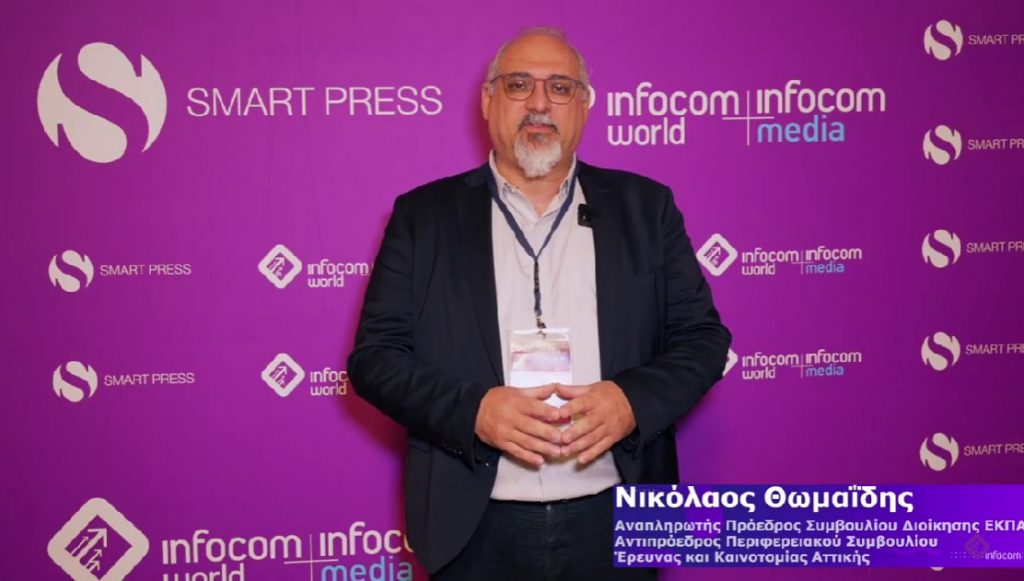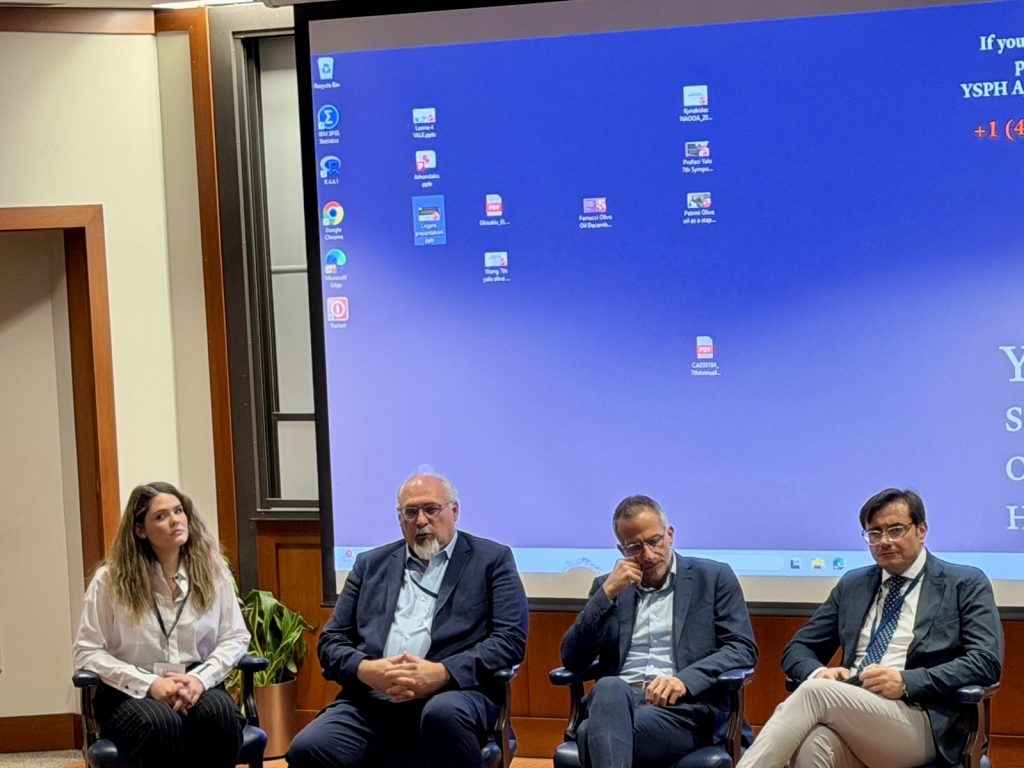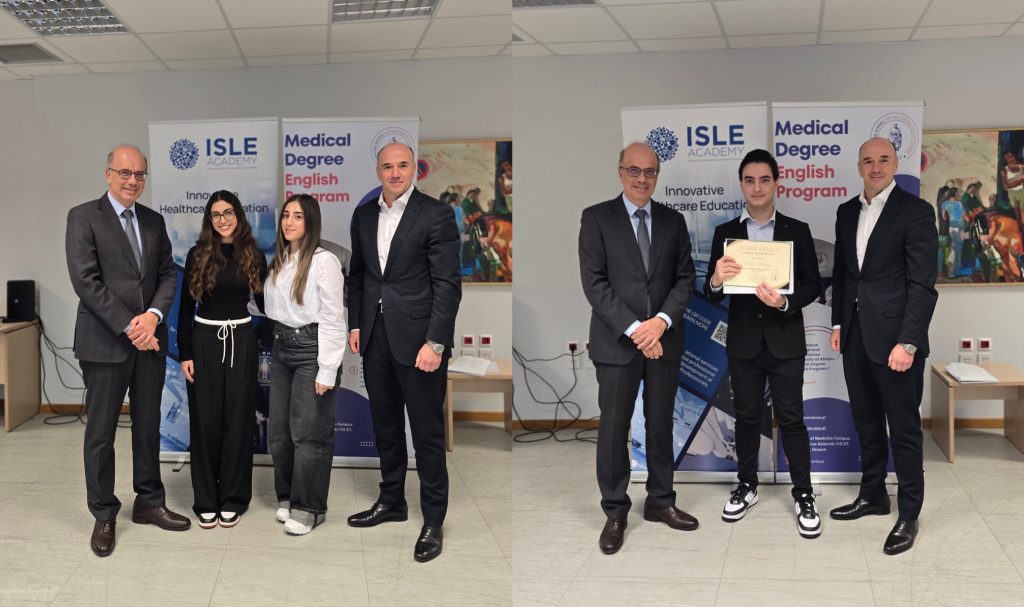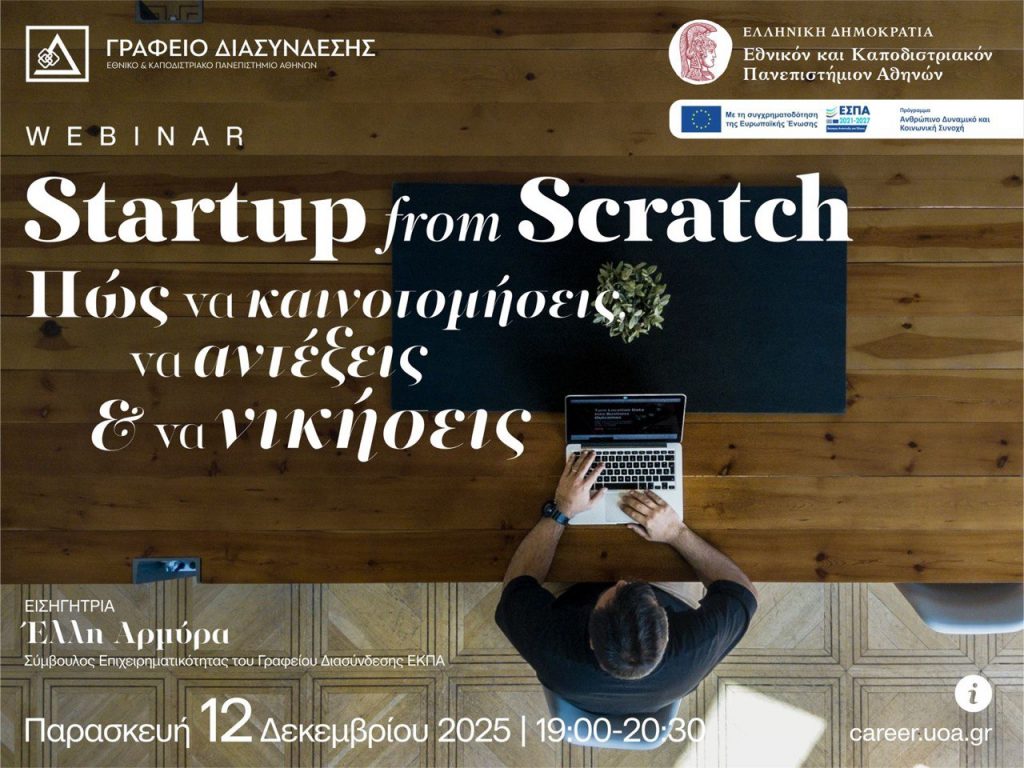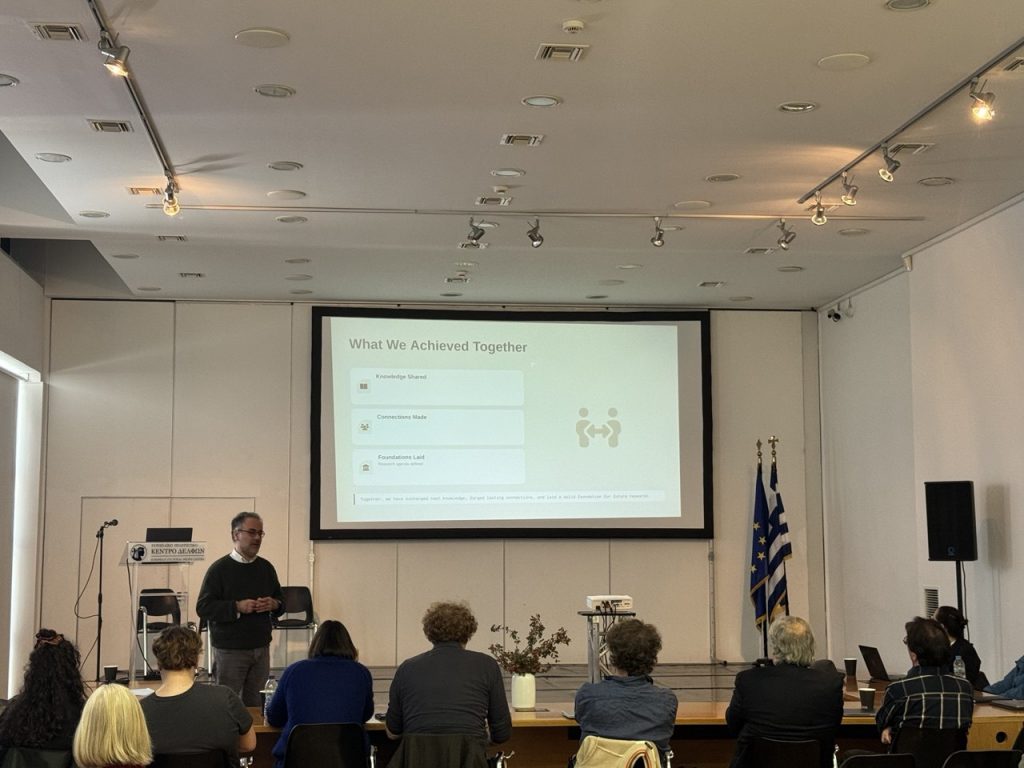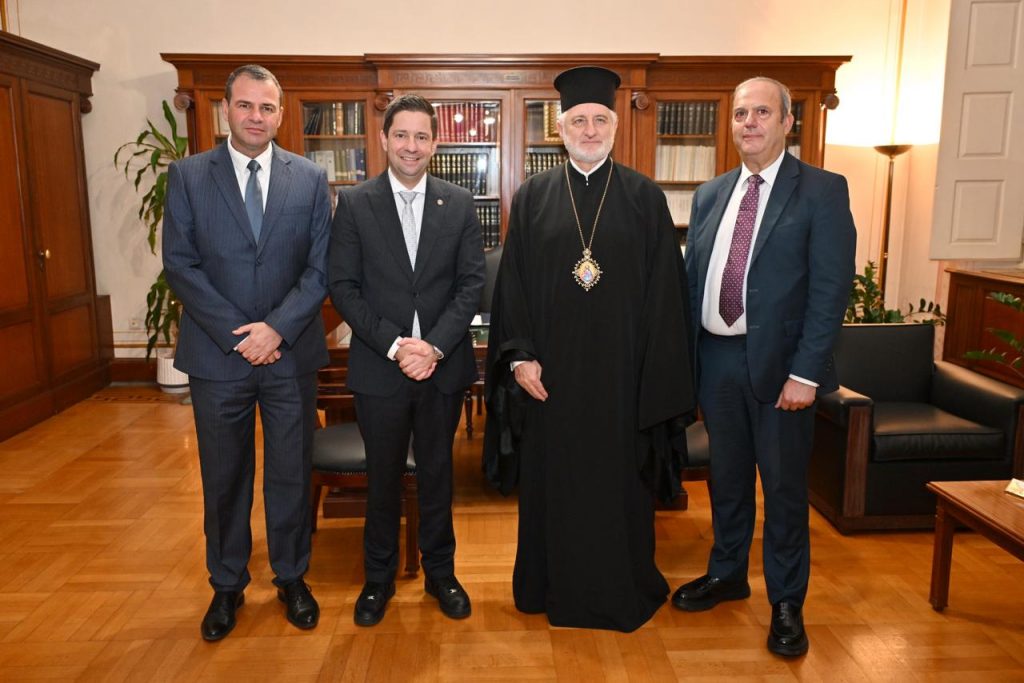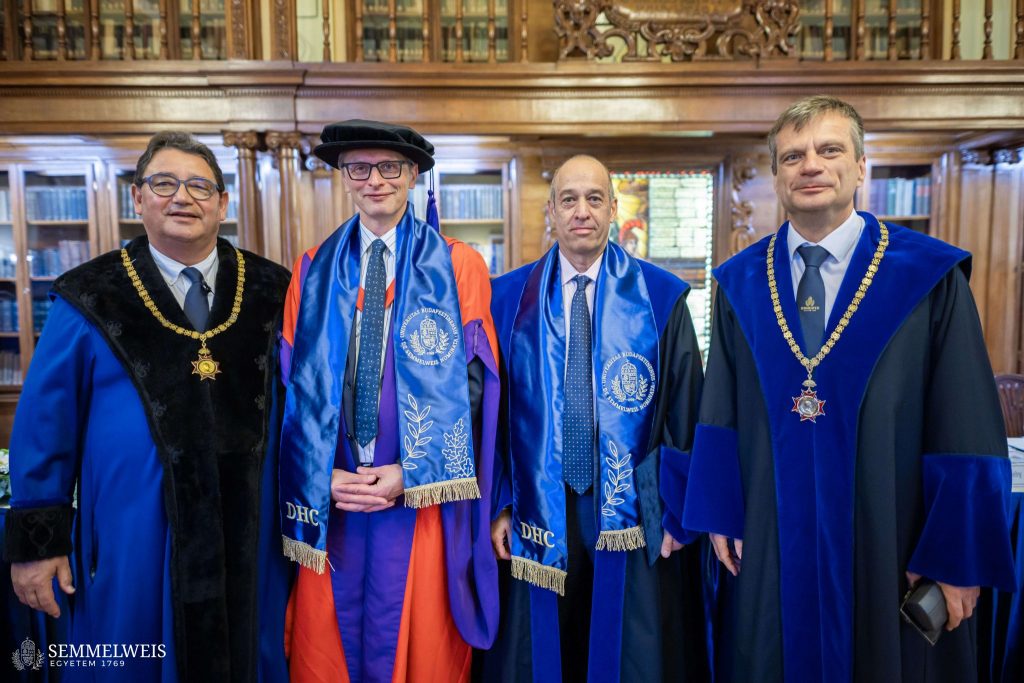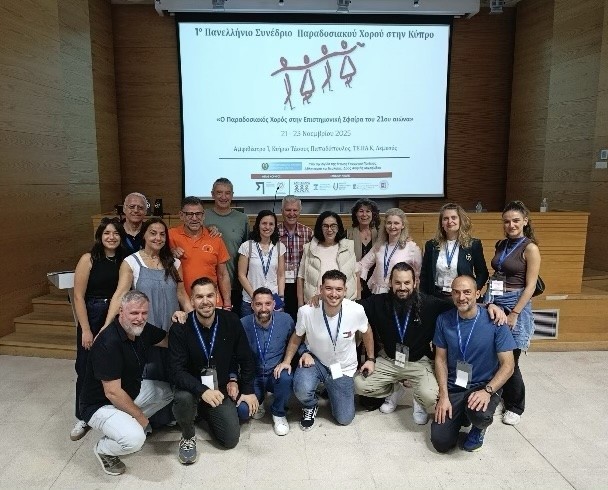The open meeting for the presentation of the results of the first phase of implementation of the CIVIS SMARTT project (Screening, Mapping, Analyzing, Recommending, Transferring, and Transforming HE International Programmes), which took place on Tuesday, 5 September 2023, at the University of Bucharest, Romania, concluded with great success—and the all-important participation of the National and Kapodistrian University of Athens.
Attending the meeting was the team of stakeholders from NKUA, led by Ms Sophia Papaioannou, Vice-Rector for Academic, International Relations, and Extroversion, Professor of Latin Literature, and Expert on behalf of NKUA in the SMARTT project, Mr Ilias Antoniou, Administrative Project Manager of CIVIS at NKUA and Work Package 4 – Communication and Dissemination Leader in the SMARTT project, and Ms Foteini Pantiora, Communication Officer for the project.
Also present at the meeting were the Secretary General for Higher Education at the Ministry of Education, Religious Affairs, and Sports, Mr Odysseus-Ioannis Zoras, representing the respective Minister, the Romanian Minister of Education, Ms Ligia Deca, the Head of the Unit for Higher Education at the Directorate General for Education, Youth, Sport, and Culture of the European Commission (DG EAC), Ms Vanessa Debiais-Sainton, senior government officials from EU Member States, European Commission Executives, and representatives of European Universities, the international academic community, and Higher Education agencies in EU Member States.
NKUA, a founding member of CIVIS and the SMARTT project implementation team, co-leads Work Package 4 – Communication and Dissemination in the above project. SMARTT is a collaboration between CIVIS and the European Universities EUTOPIA, NEUROTECHEU, and UNITA, Higher Educational Institutions, and European and national stakeholders. The European Commission has approved SMARTT as one of the six pilot projects to test EU criteria and formulate proposals towards a European label for joint degree programmes. The European Degree label will be a certificate of excellence related to the qualifications of students graduating from programmes through collaboration between different Higher Educational Institutions.
The NKUA’s Vice-Rector for Academic, International Relations, and Extroversion, Ms Sophia Papaioannou, in a statement about the SMARTT project, said: ‘NKUA, in order to provide high-quality services and new opportunities to the student and academic community, places considerable emphasis on extroversion and international cooperation. Participation in the European University CIVIS and the innovative SMARTT project positions NKUA as a leading player in the dialogue on developing the European Higher Education Area. The international orientation of NKUA, one of the main strategic goals of the Institution, will be strengthened, as it is critical for our students’ broadening of knowledge, experience, and skills’. As part of the event, Ms Sophia Papaioannou attended a meeting at the office of the Rector of the University of Bucharest, Mr Marian Preda, along with representatives of the Authorities of other European Universities. She also participated in a SMARTT expert group meeting on drafting the project’s interim results.
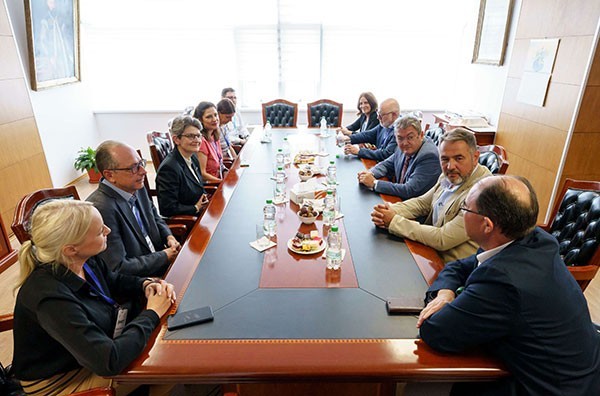
In his opening remarks, the Secretary General for Higher Education at the Ministry of Education, Religious Affairs, and Sports, Mr Odysseus-Ioannis Zoras, stated, among other things, the following: ‘The leadership of the Ministry supports the extroversion of Greek Higher Educational Institutions, the expansion of international and European collaboration, and the promotion of innovative actions, especially, through the implementation of Law 4957 on Higher Education. Our goal is to contribute to the growth of the European Higher Education Area and the opening of new perspectives for the academic community while advancing social and economic development on the national and international levels’.
The Romanian Minister of Education, Ms Ligia Deca, said: ‘Innovation in the educational system is the most important project we are working on together. To achieve this, we must return to the basic concepts—the European values—to create a European identity. Collaborating Universities need to develop a common legal framework based, first and foremost, on trust’.
Ms Vanessa Debiais-Sainton, Head of the Unit for Higher Education at the Directorate General for Education, Youth, Sport, and Culture of the European Commission (DG EAC), referred to the importance of providing new opportunities to the youth through the European Higher Education Area, noting that: ‘The SMARTT project, a cooperation of 4 European Universities, 29 Higher Educational Institutions, 18 countries, and 15 national organizations, is a significant step in this direction’.
NKUA and the Higher Educational Institutions involved in the SMARTT project plan to build on their extensive experience in the design and implementation of cross-border joint degree programmes by providing, based on definite methodologies and detailed analyses, recommendations and proposals to the European Commission as well as to the individual Member States that will support the creation of a European approach to the design and implementation of such programmes under the European strategy for Universities and the strategic goals of the European Higher Educational Institutions.





